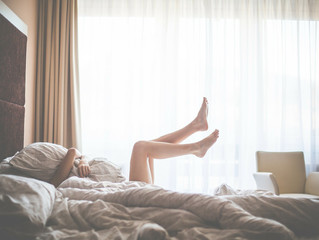Sleep.
Given that on average we sleep for one third of our lifetime, you would think it would be a task we find easy to do. However, it is quite the opposite. Thanks to overloaded schedules, the never ending use of technology and our reliance of caffeine; sleep has now become a daily struggle.
Let’s face it, counting sheep and listening to lullabies can only get you so far, but remember you’re not alone. Let’s have a look at the stats. 47% of people say stress or worry keeps them awake at night and 22% of people sleep poorly most nights. Despite this, 49% of these people say they have never taken steps to help them sleep.
So how do we overcome and combat this issue without needing to turn to the use of sleeping medications or expensive gimmicks?
Simple. First, you need to make some slight adjustments and modifications to your night routine. Here’s how:
- Cut out your caffeinated midnight snacking.
Caffeine is a stimulant and in small doses can increase performance, but in moderate to large doses it blocks sleep neurotransmitters causing insomnia. The refined sugars found in caffeinated foods or beverages can also cause stress the organs in charge of hormone regulation. Ultimately, this causes you to wake in the night as your levels fluctuate. - Hitting the snooze button.
It’s the same thing every morning, we set our alarm an hour early to allow us an extra hour to sleep and slowly ease into the day. However, this extra sleep is fragmented and low quality. We can also prepare the body for a new sleep cycle that we won’t have time to finish, resulting in fatigue throughout the rest of the day. - Using technology before bed.
Want to hear a scary story? 78% of people use a smartphone, tablet or laptop before they go to bed. All of these gadgets emit blue light, which is known to delay the production of melatonin, our sleep inducing hormone. To put an end to this, give yourself a technology curfew and move any electronic devices out of the bedroom all together.

